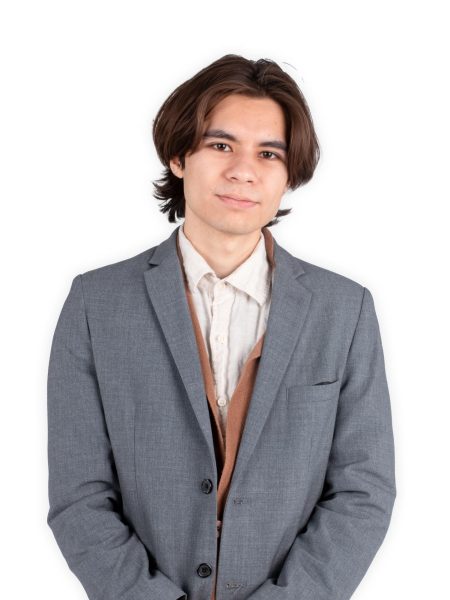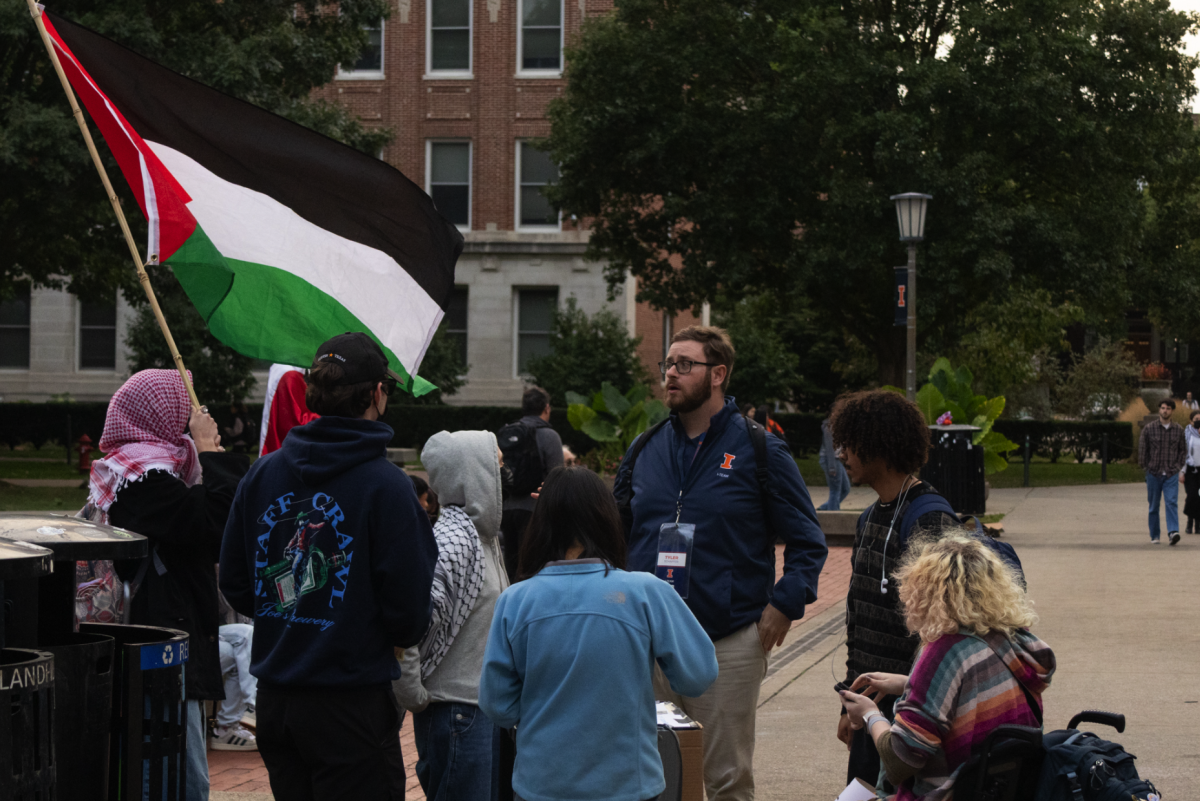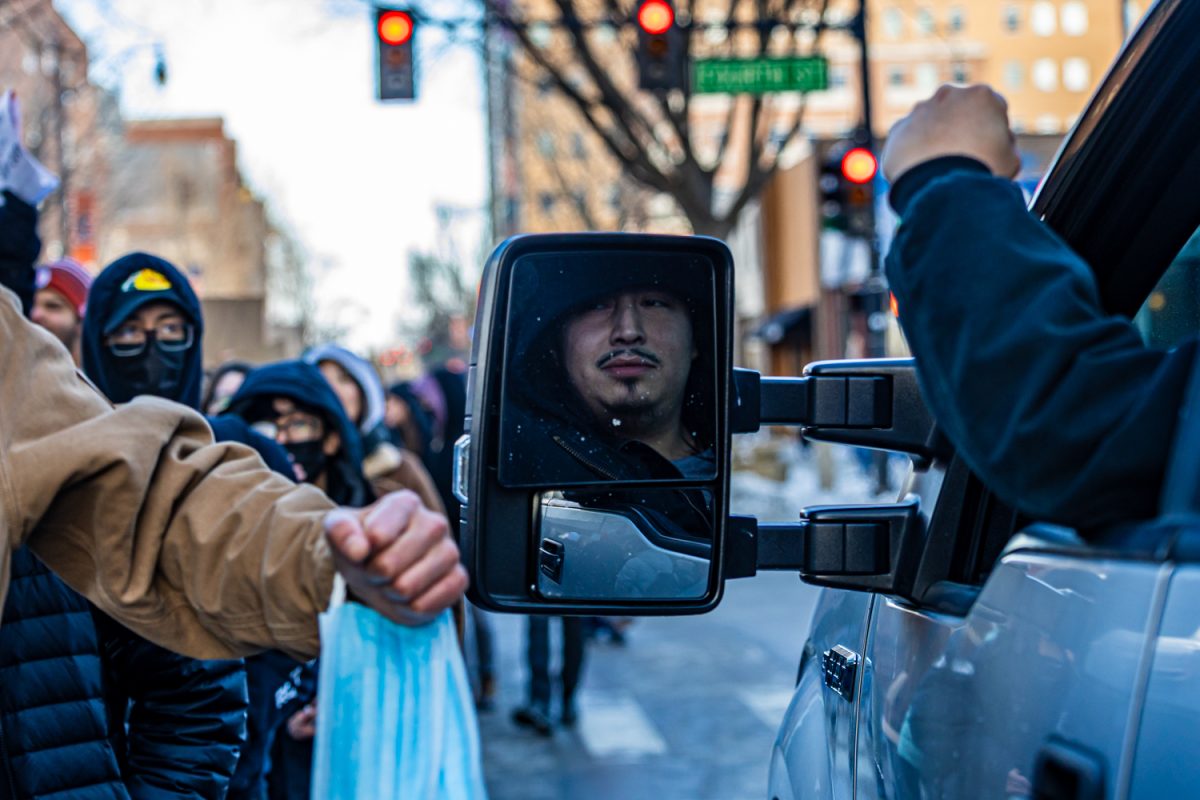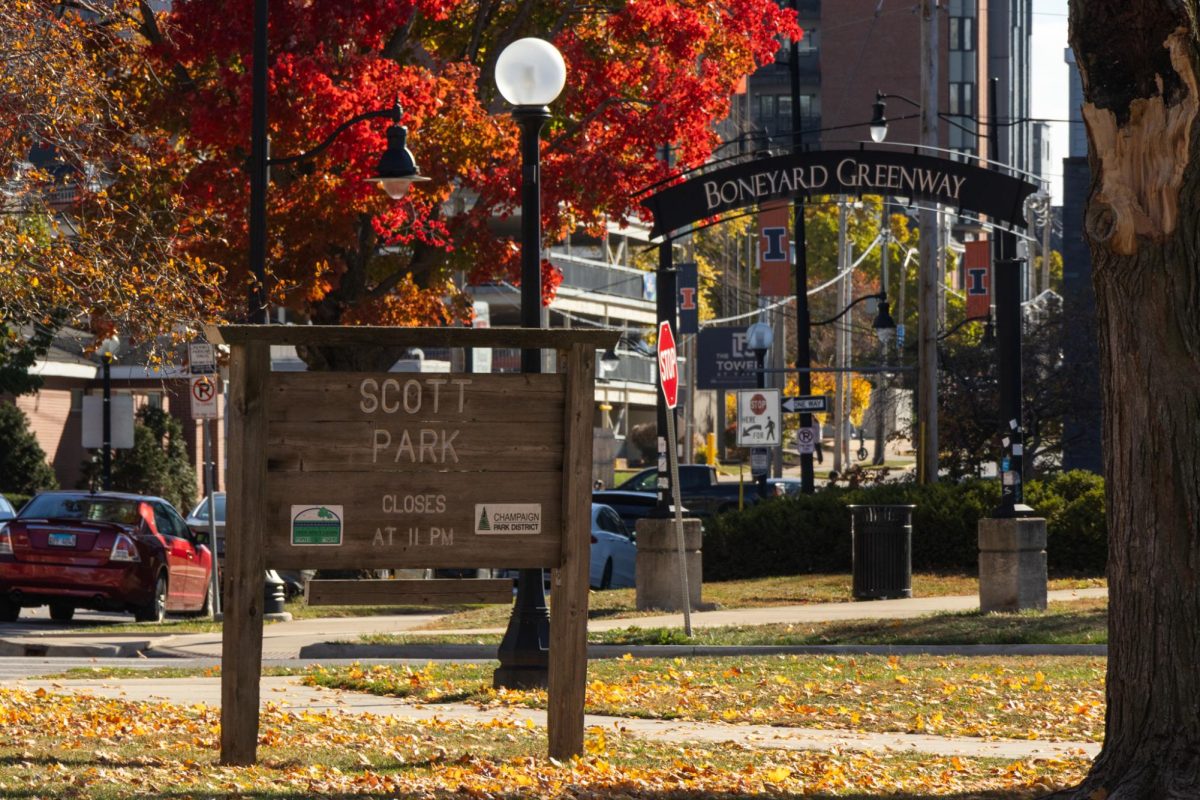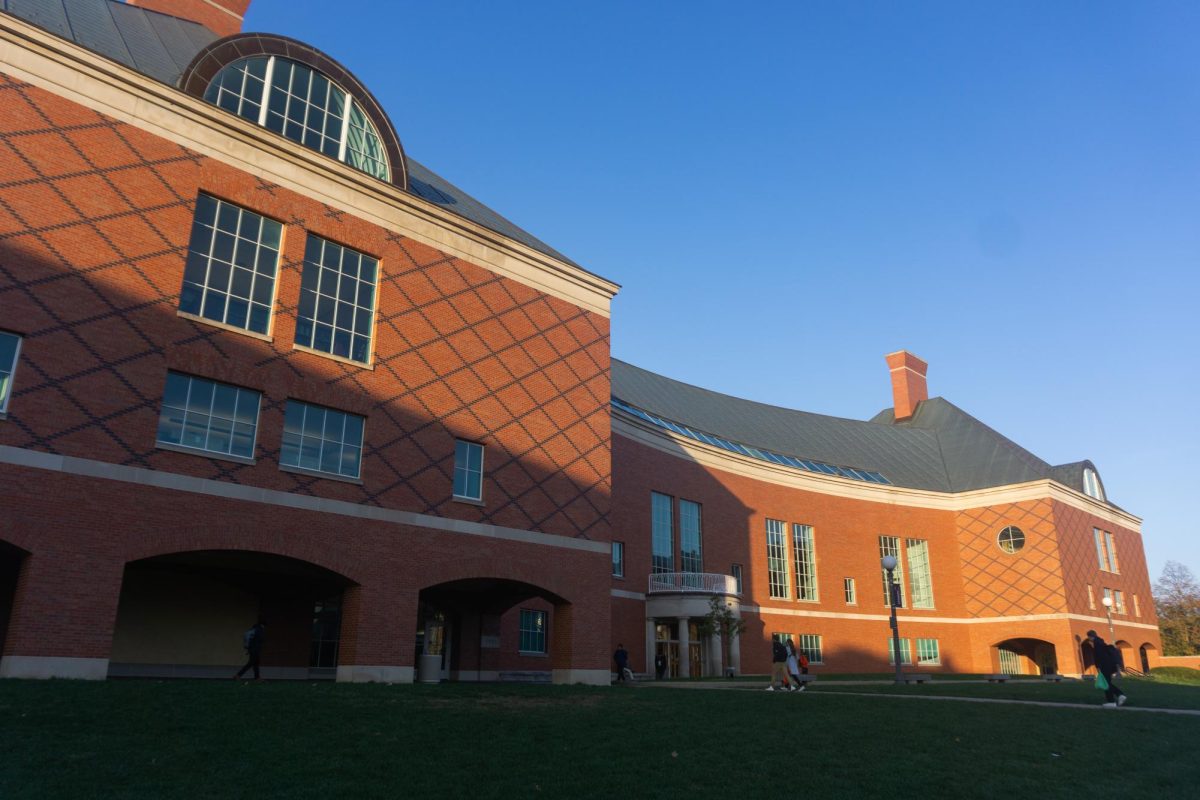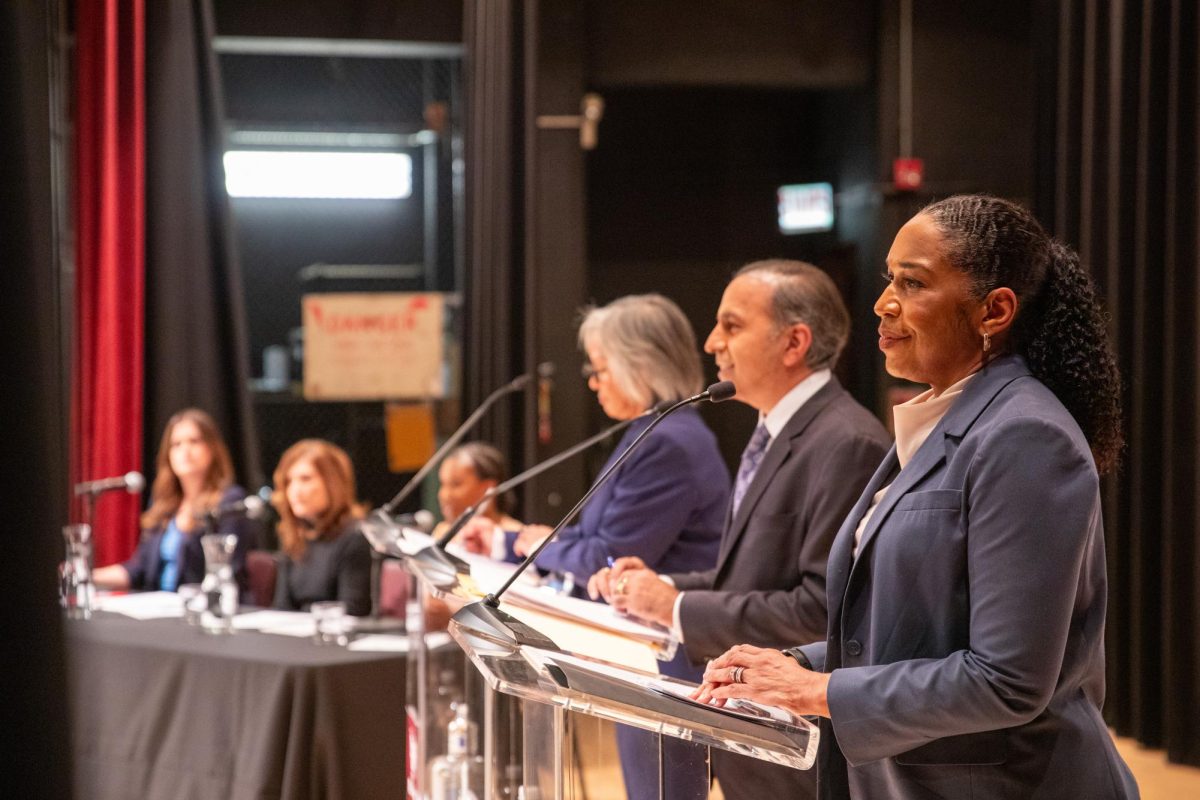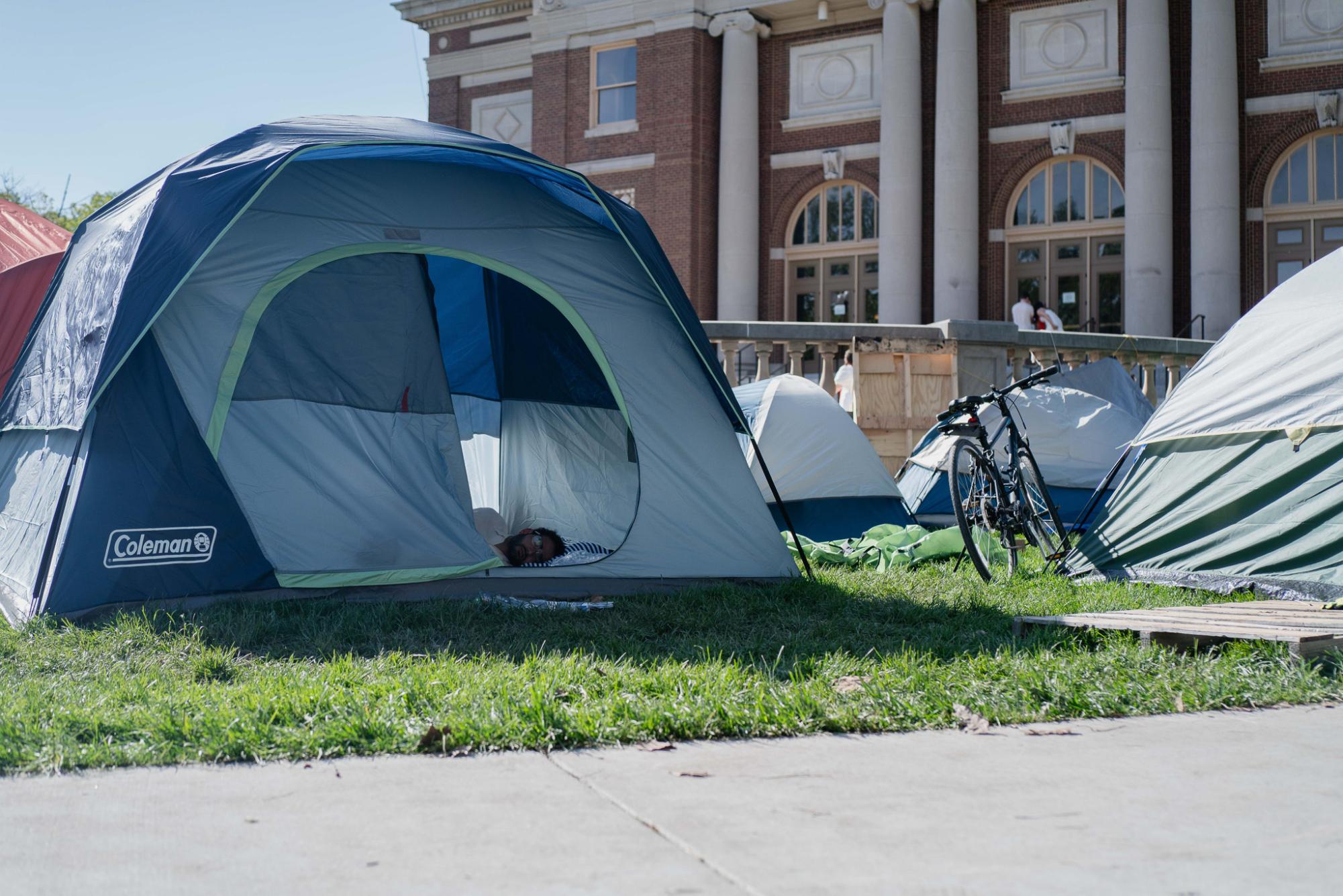
Live coverage: Encampment continues to day 5 on Main Quad
According to a police scan, dispatchers instructed the individuals who placed the phone call to meet with UIPD on the north end of the Union.
Following this conversation, police retreated into their vehicles, but remained on the scene for several minutes.
As of 1:13 a.m., police have left the scene.
The Daily Illini spoke with Izzy Grosof, a postdoctoral research associate in Engineering, about the encampment.
DI: What’s your relation to the encampment? Are you a student here?
Grosof: I’m a postdoc. I’m in the Electrical & Computer Engineering department, and I’ve been at the encampment a good amount. During the nights, during the days, at the teach-ins, just all the different elements of it.
DI: Why do you believe that it’s important to have these encampments at universities?
Grosof: I think it’s really easy to hear about people dying or injuries or buildings being destroyed and just be like “It’s just a story, that’s not real.” And when you see, oh, this is a bunch of tents. This is a tiny fraction of what people are going through right now, and then you’ve got a place where people can find out more about it. People can find common cause, I think that’s really important.
DI: How do you feel about the way the administration has reacted to the encampment here at the University of Illinois?
Grosof: I think the administration has really reacted very negatively and not in a way consistent with their stated policies on things, like the initial tent removal. On Friday morning, I wasn’t there for that, but looking into it, I don’t think that was warranted or ethical the way they handled things. Then to enter later negotiations, it doesn’t remotely feel like they’ve been negotiating in good faith. It just feels so wrong.
DI: You said that you are Jewish. Can you talk about different perspectives held by Jewish people on this campus?
Grosof: I’ve been seeing a lot of people, especially Jewish people, making claims like, “having an encampment like this is antisemitic or makes all Jewish people feel scared of things like that.” I just think that couldn’t be farther from the truth. I’ve been spending a hell of a lot of time in the encampment, and there’s a very, very firm separation between Jewish people as a group of people and these actions of the Israeli military as a state using force, and they’re not remotely the same thing. So that was part of why I wanted to talk to The DI was to say, you know, people are presenting a perspective as if it’s universal and it’s not universal. And also, there are a lot of important Jewish teachings about freedom from oppression. Jewish people have been oppressed a lot of times over from the Torah days to the Roman days to the medieval days to the 1800s to World War II to a lot of different points of history, right? And what we’re supposed to do is not forget it, not forget when we were oppressed, and have solidarity with people who are oppressed now. But I think a lot of people, they remember when we were oppressed and think we must be the ones who are being oppressed now. But nobody’s dropping bombs on my house. I don’t have to flee for my life. I’m not being denied food and water and all this stuff. And I know who is — it’s people in Gaza and there’s no ethical reason to be doing that
DI: How do you feel about the Jewish pride events that have happened the last few days? There was one near Alma Mater yesterday.
Grosof: We had a Seder at the encampment on Sunday. I was one of the people speaking at it. I didn’t organize it, but, you know, I was participating in it. I guess what I’m saying is I think Jewish pride is important and it doesn’t have to look like Jewish supremacy, which is, I think, more what you see in the rhetoric of the Israeli Government recently, especially the Netanyahu government specifically. So yeah, there’s a difference.
DI: Is there anything else you’d like to add?
Grosof: I’m also queer, and I’ve been treated as an abnormal danger. A lot of that rhetoric is aimed at trans people, and it gets easier to recognize what it’s like to be described as dangerous when you’ve never done anything. And when you see that with other people — solidarity is the same idea.
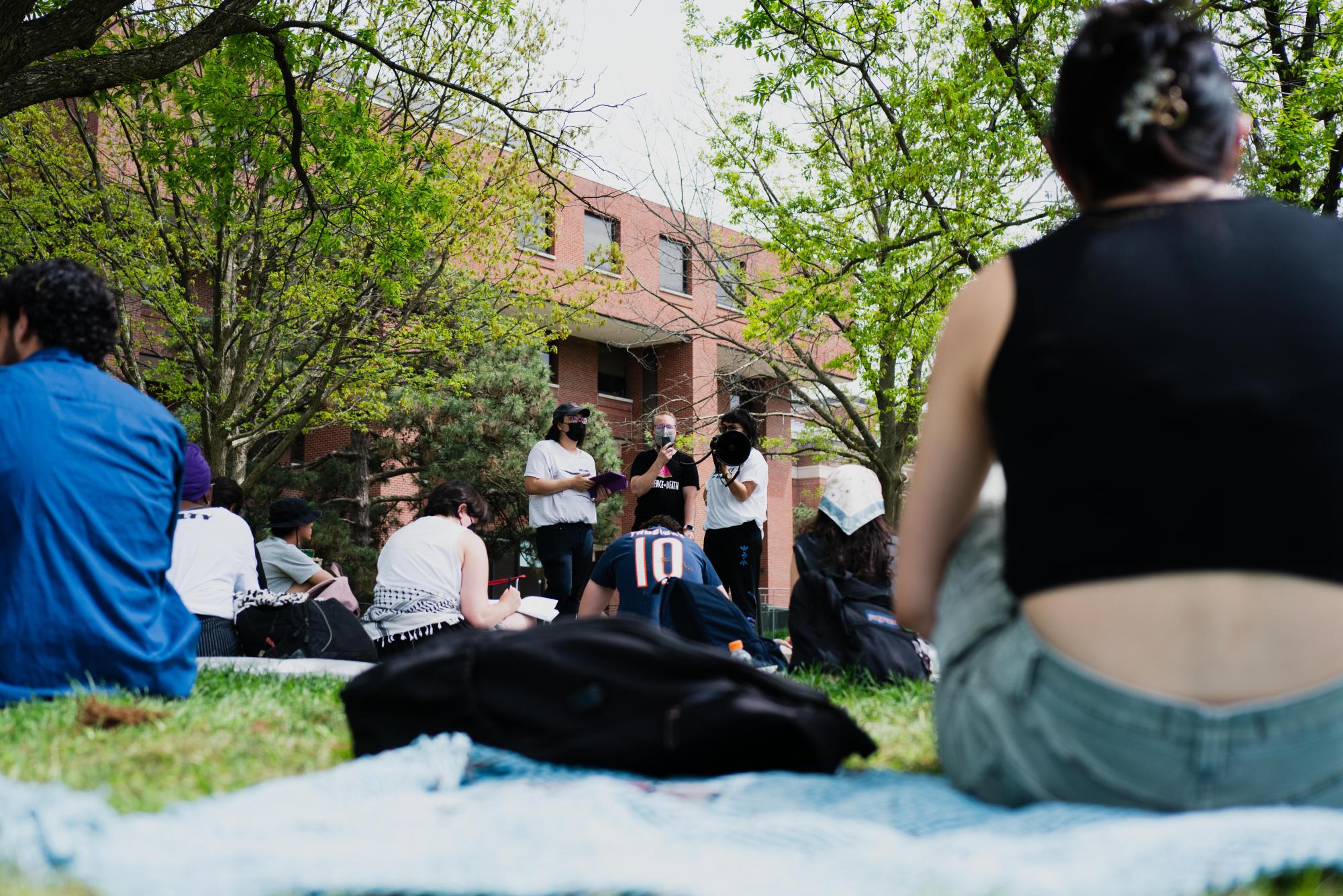
Organizers began a teach-in on the historic decolonial solidarity between Africa and Palestine stretching back decades.
The teach-in started by outlining the difference between anti-Zionism and antisemitism, and how, according to the organizers, Zionism is a political tool used to enact white supremacy.
In the 1960s, revolutionaries such as the Black Panthers showed strong support for Palestinian decolonial efforts against their shared oppressor: white Europeans.
An archived talk by civil rights leader and Pan-Africanist Kwame Ture started off with “Imperialism: the highest stage of capitalism,” referencing the book of that title by Vladimir Lenin.
“Zionism is certainly not a liberation movement,” Ture said. “Zionism is the baby-child of imperialism in the Middle East.”
According to Ture, if our tax dollars no longer went to Israel, the state would sink tomorrow.
The excerpt ended with, “The Palestinian state belongs to the Palestinian people — this is a fact.”
Organizers called for people of all races to join together and “challenge the systems that seek to divide us.”
The event then opened the floor to discussion, to which one member of the encampment said, “We are all one people, this is all one struggle.”
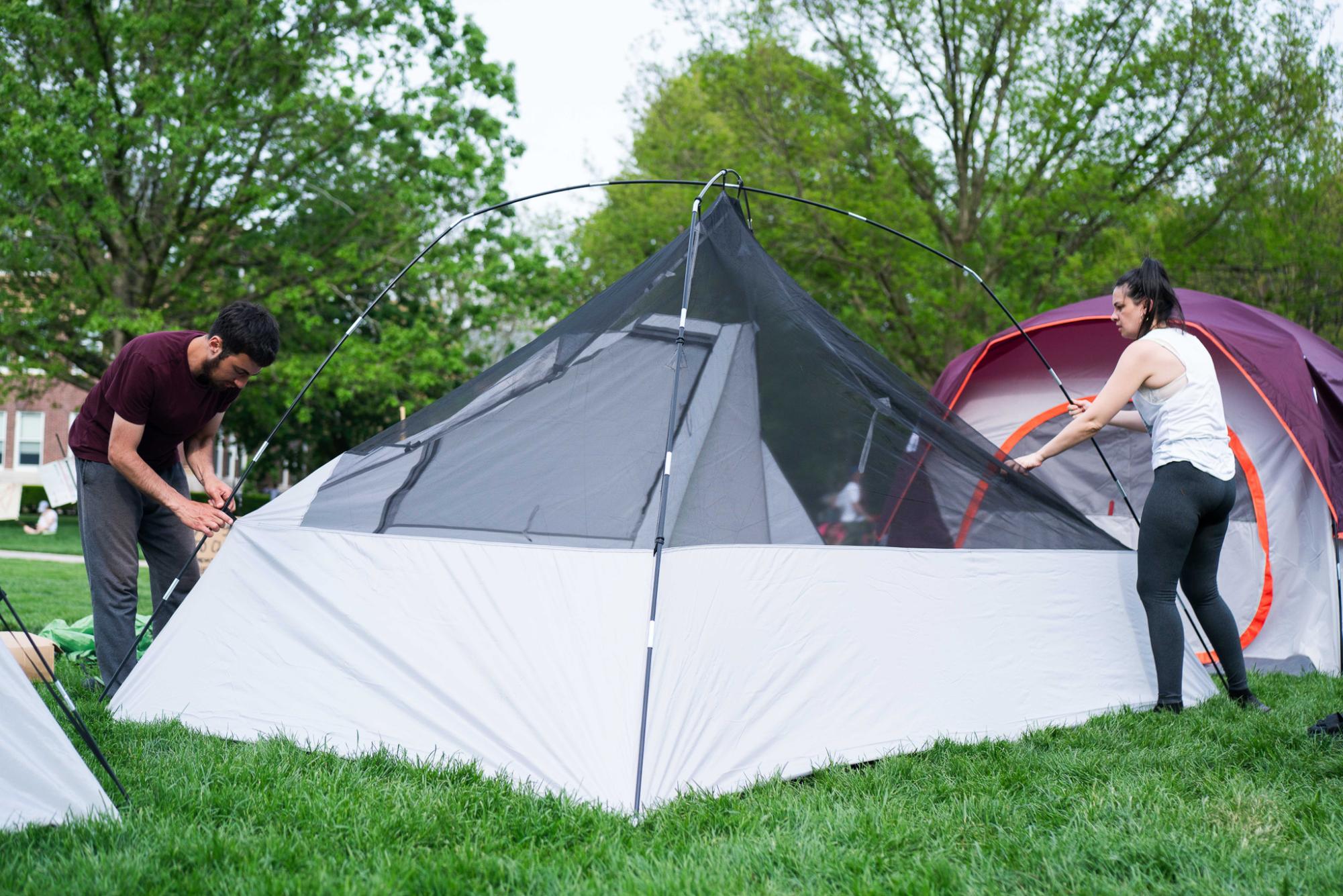
Democratic Sen. Paul Faraci of Illinois has spoken with the Champaign Police Department, the University, the City of Urbana and the City of Champaign “about the need to protect the peaceful demonstration of free speech while ensuring university procedures are being followed,” per a statement from Faraci.
In the statement, Faraci also emphasized the importance of ensuring the safety of the University community and first responders when free speech occurs.
“Our nation is built on the idea of allowing for differences of opinion and I value fostering an environment where diverse voices can be heard without fear,” Faraci said in the statement.
